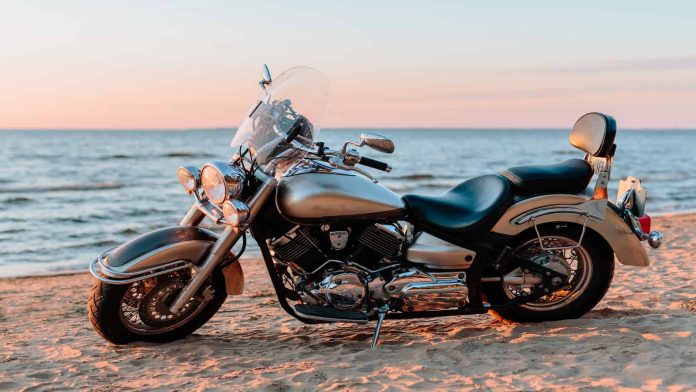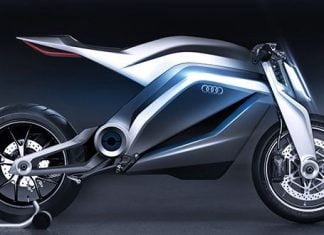When most people think of company cars or commercial vehicles, they do not think of motorcycles. Due to their size and higher risk of driving, they are not very practical for transporting, commuting, or long-distance traveling.
However, there are some employees who utilize a motorcycle for professional or commercial purposes, such as small deliveries, commuting, or sports and stunt driving. When it comes to such cases, do professional drivers have legal protection and rights in case of an accident? Of course. However, there are a few practicalities to take note of that will be highlighted in this guide.
Common Causes of Motorcycle Accidents
Motorcycles offer less protection than cars or trucks; they are more exposed and typically less crash-worthy. Helmets and other protective gear can significantly reduce injuries, but there is still risk. Common causes include:
- Missed Motorcycles: Many drivers do not look for or notice motorcycle drivers due to their smaller size. This can cause collisions.
- Busy Streets: Congested roads lead to a higher risk for collisions due to lack of space or frustration. Intersections are one of the most popular sites for motorcycle accidents.
- Distracted Driving: Not paying attention while driving can cause a collision, especially with a smaller profile vehicle such as a motorcycle.
- Impaired Driving: Any motorcyclist or automobile driver driving drunk, high, or otherwise impaired significantly increases the chances of endangering themselves or others in an accident.
- Speeding: Both motorcyclists and other vehicle drivers alike often engage in dangerous speeding, increasing the risk of distracted driving and collisions.
Despite the higher risk of driving motorcycles, they are at times required for work, such as stunt-related roles on film sets. Most motorcycle accidents that occur because of work are subject to worker’s compensation and other legal rights.
Employee Work Accidents
If a motorcyclist is injured while traveling or driving for a specific job, their rights depend on the type of job, the specific company policies, and their insurance coverage. Suppose a driver’s company has its own insurance, such as a rideshare company. In that case, coverage may apply if they are in an accident on the job (though rideshare drivers are typically independent contractors opposed to employees). Other roles such as stunt drivers will typically be covered by worker’s compensation or similar programs.
It should be noted, however, that the legal definition of a commercial vehicle often does not cover motorcycles, and therefore any policy covering this definition will not include motorcycles. Drivers will not need a CDL license to operate motorcycles for work.
Determining Liability
When an accident occurs, regardless of whether a professional driver is involved, liability is determined depending on the location. Some states are ‘no-fault’, meaning each involved in an accident files claims with their insurance. Some states are ‘at-fault’, meaning insurance claims are filed solely with the at-fault party. If the professional motorcyclist uses company insurance, these laws will still apply.
Claims Against Responsible Parties
For those looking to seek compensation in motorcycle accident cases, work-related motorcycle accidents work a little differently than accidents off the clock.
Worker’s Compensation
A work accident does not qualify for a personal injury case. Instead, an employee wishing to file a claim or lawsuit will typically file a worker’s compensation claim against their employer. Coverage includes traveling to meetings, making deliveries, running errands, stunt accidents on film sets, or any accident that occurs as a result of operating a vehicle, including motorcycles. They will typically cover lost wages and medical expenses as a result of the accident.
Negligence Claims
If the responsible party is not an employer in a work accident, however, a negligence claim can be filed against that third party who is responsible. If applicable, this can help recover pain and suffering rewards (worker’s compensation does not cover pain and suffering). Even if you are operating a motorcycle for work purposes, you can typically still file a negligence claim if you have a case.
Criminal Charges
Thankfully, most car or motorcycle accidents are not criminal cases. However, an accident can bring criminal charges against responsible parties if a hit and run occurs, vehicular manslaughter, driving under the influence, and more. Criminal charges can and will still apply even if it is a work-related motorcycle accident.
Employee Rights
Employee or worker rights after a car accident depend on whether you were actively on the job while in an accident. An employer will typically share some or part of the responsibility for an accident if you were required to drive for work in any capacity. Not all employers will carry worker’s compensation insurance, but most are required to. Worker’s compensation can and does deny claims from time to time, however—you are not guaranteed to receive worker’s compensation benefits. An attorney can help with claim denials of any kind.
Conclusion
If a person is traveling for work-related purposes on the job, they may be entitled to worker’s compensation if an accident occurs. Claims can be denied, however. Attorneys can help with claim denials, negligence claims, or criminal charges that may occur as a result of the accident. Motorcyclists are included in worker’s compensation and legal rights after a work-related accident.


















